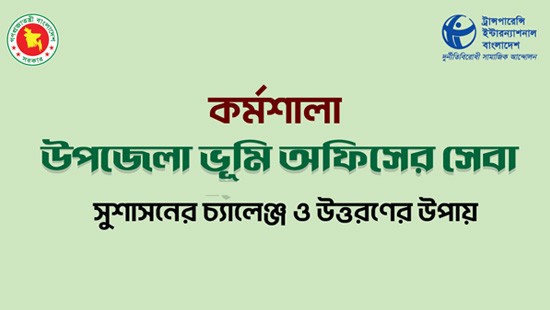Published: 30 August 2023

The digital landscape of Bangladesh is undergoing a much-needed transformation, as the nation grapples with the delicate interplay between cyber security and individual rights. After widespread discontent and international criticism, the Government of Bangladesh is rewriting its approach to digital legislation, replacing the controversial Digital Security Act (DSA) with the Cyber Security Act (CSA) of 2023. However, beneath the façade of changes lies a more concerning reality, raising questions about the future of digital freedom.
A recent comparative analysis by Transparency International Bangladesh (TIB) has shown similarities between the DSA and the draft CSA, highlighting that while the new law may carry a different name, key concerns regarding freedom of speech, dissent, and press freedom persist.
At the heart of the issue lies a lack of differentiation between cyber security and cybercrimes. The renaming to "Cyber Security Act" suggests a focus on safeguarding the digital landscape from threats, but the inclusion of provisions relating to cybercrimes derails the purpose. This combination of limiting civil liberties and protecting cyber spaces could create confusion and impede genuine efforts to safeguard digital infrastructure.
Sheikh Manjur-E-Alam, TIB’s Director of Outreach and Communication, aptly points out that the new law, like the previously enacted Digital Security Act, blurs the lines between protecting cyberspace and stifling freedom of expression. The government's intention to secure digital frontiers might inadvertently infringe upon fundamental rights as the government is deliberately or unintentionally failing to balance the two.
Dr. Iftekharuzzaman, TIB's Executive Director, deems the draft CSA a potential continuation of draconian measures, despite a softer exterior. His concern is shared by many who fear that without substantial changes, the legislation may inadvertently become a new tool for curtailing basic rights. “The fundamental rights to opinion, freedom of speech, free thought, and the freedom of the press are still in danger. Moreover, the idea that a person will be persecuted for expressing something online has been reestablished in the new law. The steps taken by the government are now in the process of criminalising the very basic fundamental rights of citizens,” said Dr. Iftekharuzzaman.
Additionally, TIB’s analysis says that police forces have been given broad arbitrary powers under the draft CSA without judicial supervision. While the sentences may have been reduced compared to the draconian Digital Security Act, the arbitrary powers of law enforcement agencies still pave the path for harassment, state repression, and overreaching surveillance. TIB has also raised concerns over the capacity of police forces and judicial bodies in investigating and adjudicating delicate matters like cyber security, which requires technical experts and collaboration in any given setting.
As the CSA is in the process of being passed in the parliament, TIB recommends that the new law should be thoroughly overhauled to prepare a genuine Cyber Security Act that will truly serve the purpose of ensuring the security of cyber infrastructure, computer and internet systems, digital platforms, and other components of the cyber system. The draft CSA should refrain from retaining any provisions from the DSA that compromise freedom of speech, dissent, thought and conscience, freedom of the press, and independent journalism. All stakeholders, including independent legal and technical experts, sector specialists with knowledge and expertise on international best practices, human rights organisations, journalists, and other relevant professionals, should be closely involved in the process of overhauling process of the draft.
To read TIB’s analysis and view the presentation, click here.







